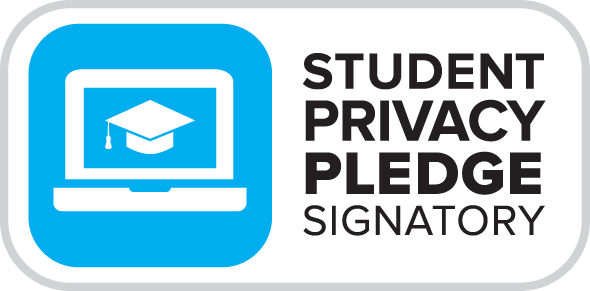Parent FAQs

-
Do you have an overview of the Emotional ABCs program?
Emotional ABCs is a skills-based social emotional learning (SEL) curriculum for children ages 4-11 which teaches foundational emotional skills. Our program follows the national guidelines established by the Collaborative for Academic, Social, and Emotional Learning (CASEL), the leading curriculum development group for SEL skills. Emotional ABCs has received awards from a wide spectrum of organizations including a “Top Pick” from Common Sense Media, and the “Revere” Award from the Association of American Publishers. Other recent accolades include the 2020 CODiE Award, recognition from the American Association of School Libraries (AASL), and the Gold Stevie Award. Our Emotional ABCs curriculum is now used by parents in 120 countries and by educators in more than 118,000 schools worldwide.
Parent subscriptions offer a complete Social Emotional Learning (SEL) curriculum in a format that children can do with minimal supervision. The evidence-based program uses a full curriculum of videos in conjunction with more than 100 sequential online and offline skill-building activities, plus games and rewards that reinforce and expand these newly introduced skills.The program is divided into 10 Units, each with a set of Lessons, Rewards, and Certificates. Activities are varied to reach all types of learners and to maintain a child’s interest. -
What are Emotional Skills?
The leading authority on social emotional learning, The Collaborative for Academic, Social and Emotional Success (CASEL), defines social-emotional skills by using several important areas of competencies. These areas include Self-Awareness, Social-Awareness, Self-Management, Responsible Decision-Making, and Relationship Skills. Most social-emotional learning (SEL) programs work to teach students skills in these competencies.
-
How can Emotional Skills help my child?
Emotional skills can help your child make good decisions, especially in emotionally stressful situations because emotional skills help a child understand what they are feeling, discern the feelings of others, and evaluate their choices of action instead reacting impulsively. With strong emotional skills, children have the tools to make considered choices and are much more able to weather emotional storms. And, years of research has shown that children learn best and are most successful when they can better regulate their emotions.
-
How is the Emotional ABCs program different from the Social Emotional Learning (SEL) curriculum at my child’s school?
Schools that teach SEL curriculums are offering a great service to their students and families of their community. These programs often focus on social skills such as developing empathy, anti-bullying, understanding diversity, and team-building.
Our program teaches all competencies of SEL learning as outlined by The Collaborative for Academic, Social and Emotional Success (CASEL), but we have a specific emphasis on teaching children the fundamentals of basic personal emotional skills. These include, most importantly, the ability to identify, communicate, and effectively manage one’s own emotions. By building these strong individual emotional skills at home (skills which are often not included within a school SEL program), a child will have an increased ability to participate in school SEL curriculums, many of which focus on group social skills. -
What is your pedagogical approach?
We use established pedagogical guidelines which are proven to promote skill-building. These include:
1. Making the goal clear
2. Presenting a model for the user to observe and copy
3. Introducing opportunities to practice the new skill
4. Offering chances to use the new skill ’in real time’
5. Rewarding consistent effort
6. Creating a sequence that builds on previously mastered skills
Our Lesson List, which is available in all Parent subscriptions, is the basis for the complete sequential Emotional ABCs curriculum and demonstrates our pedagogical approach. Each Unit contains videos with supporting activities. Rewards are found on My Board. -
At what age should I start my child on the program?
Emotional ABCs is designed to be fun, useful, and educational for children ages 4 and up but because each child learns differently, this will depend on your child. Developmentally, it is appropriate for very young children to act impulsively, but around the age of 4 years old, many children can start to better control some of their reactions. Refer to News to learn more about developmental timelines for emotional skills.
-
My child is an emergent reader. Can they use your program?
We have added audio to most aspects of our program so a non-reader or an emergent reader can easily follow our instructions. However, some activities require elementary word recognition.
-
My child has learning challenges or difficulties or a disability. Is Emotional ABCs right for my child?
Every child is different and your child’s response and results after using our program may differ from another child’s response and results. Although many parents and teachers have had success using our program, Emotional ABCs is offered “as is” and we do not guarantee responses or results in any way. Our program is designed to offer tools that may help children who are finding it difficult to identify sensations, facial expressions, emotional clues, and how to work through these emotions. Teachers and counselors in more than 38,000 Special Education classrooms across the country have signed up for our program.
Our Parent program uses varied educational approaches to appeal to as many types of learners as possible. These include peer-to-peer video teaching, animation, an affable cartoon character named Moody, music, visuals, drawings, and online and offline games. If you are unsure if our program will appeal to your learner, we suggest you watch our Intro video to help gauge your own child’s level of interest.
(Emotional ABCs is not medical or mental health advice and should never be considered as a substitute for consulting a medical or mental health professional. Medical or mental health diagnoses and treatment should be provided only by a qualified medical or mental health professional. See Disclaimer.) -
Where can I see recent reviews?
Up to the minute Parent and Teacher Reviews can be found on our Emotional ABCs Facebook page at www.facebook.com/EmotionalABCs/reviews
-
Can Emotional ABCs be done offline?
Emotional ABCs is an online program, but our 100+ printables allow for offline review, activities and games. For example, a library of Moody Cards can be printed. Children can use these cards to play matching games, card games, and other unplugged activities.
-
I am a homeschooler. Can I get the Parent subscription for free?
No. Our program is not free to home educators. Many companies that create full day school programs used by homeschoolers are reimbursed by the government and can therefore offer their programs free to home educators. We do not get reimbursed by the government and are therefore not able to offer our program free to these customers. If you are interested in other homeschool options, please consider our Premium Single User and Premium Group offerings.
-
Tasks that can be done in the Parent "Admin" tab:
a) How do I change my child’s Avatar, Picture Passcode, or Username?
- Log in to Emotional ABCs, select your child’s avatar and passcode, and go into the program.
- Click on the “Admin” tab at the center top of your screen if on desktop or in the “hamburger” menu if on mobile.
- Enter the Admin code you created when you signed up.
- Go to the ’User’ tab within the Admin to change your child’s Avatar, Picture Passcode or Username in the Admin.
b) How do I restart or unlock a user’s account?
- Log in to Emotional ABCs, select your child’s avatar and passcode, and go into the program.
- Click on the “Admin” tab at the center top of your screen if on desktop or in the “hamburger” menu if on mobile.
- Enter the Admin code you created when you signed up.
- Go to the ’User’ tab within the Admin. Within your child’s profile, you will find the LOCK/UNLOCK buttons for your child’s account.
c) Where do I add additional users for my Family subscription?
- Log in to Emotional ABCs, select your child’s avatar and passcode, and go into the program.
- Click on the “Admin” tab at the center top of your screen if on desktop or in the “hamburger” menu if on mobile.
- Enter the Admin code you created when you signed up.
- Go to the ’User’ tab within the Admin. A pane will show your current assigned users as well as any empty user accounts. Click CREATE underneath an unassigned icon to add additional users.
d) How do I update my credit card or billing info?
- Log in to Emotional ABCs, select your child’s avatar and passcode, and go into the program.
- Click on the “Admin” tab at the center top of your screen if on desktop or in the “hamburger” menu if on mobile.
- Enter the Admin code you created when you signed up.
- Go to the ’Account’ tab within the Admin and then to ’Billing Details’ to update your Credit Card or Billing info.
e) How do I cancel my subscription?
- Log in to Emotional ABCs.
- Click on the “Manage Account Settings” below your students’ avatars.
- Enter the Admin code you created when you signed up.
- Click on “Cancel Subscription” in the Overview of the Account tab.
- We do not offer prorated refunds or credits for any partially used subscription period, but you will continue to have access to the program until your current billing period ends as long as you have cancelled your subscription yourself within the Admin.





